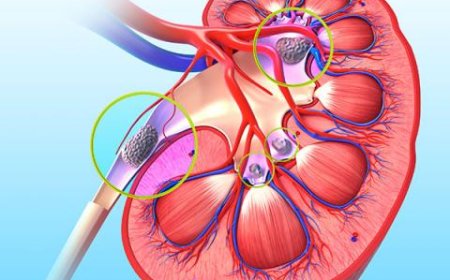Team-Based Care Boosts Patient Outcomes in Hospitals
Team-based care brings together healthcare professionals to deliver coordinated, patient-centered treatment for better outcomes and improved efficiency across medical services.

Are you struggling with long wait times or miscommunication in hospitals? Team-based care with expert doctors, nurses, and specialists collaborates for faster, more coordinated, and effective patient outcomes.
In this blog, we will explore how team-based care can boost a patient's recovery in the hospital.
For example, a hospital in Multan taught us a valuable lesson: collaboration isnt just about management buzzwords, but it saves many lives.
However, when doctors, nurses, pharmacists, and support staff work together, the recovery results after any treatment are more wonderful than our expectations. It supports fast recovery and gives better care with happier patients.
As a healthcare provider, I have seen how a team-based model can transform the patient experience from stressful to an organized and coordinated workflow.
Why Team-Based Care Matters
Many of us think healthcare is only the responsibility of doctors individually; they are free to make all the decisions. But this healthcare model is outdated.
Today, patients are facing complex health needs that are not being addressed by a single person. Its a shared responsibility. Every member of the medical staff plays their essential role.
Therefore, a collaborative team makes it possible to manage chronic conditions, prevent medical errors, and make sure to deal with every detail, big or small.
Reduced Burnout, Enhanced Staff Performance
When responsibilities are shared, staff feel supported. Doctors can attend to critical patients without any load. If every one of the staff members performs their duties properly, then it reduces burnout.
For example, as a doctor, I have observed that team-based care helps to reduce burnout, improve morale, and develop a more positive work culture.
However, this collaboration benefits both the staff and the patients they serve. When healthcare providers give proper time and involve patients in their care process, they show a healthy recovery.
Building Trust Between Staff and Patients
Trust cannot be developed overnight. It produces, when patients receive team-based care, their healthcare providers tell them about the procedure.
If doctors, nurses, and other staff members work together, then patients feel heard and valued. It supports a trusted relationship among staff and patients.
This shared trust not only improves communication but also motivates patients to follow treatment plans more confidently, which gives us better recovery rates.
Personalized Care Through Shared Insights
Each patient has unique characteristics, and their treatment needs are also different. If you, as a doctor, want fast recovery of patients, first you have to focus on personalized care, while discussing with your medical team.
When team members share insights and collaborate across roles, we create more patient-centred care plans that better meet individual needs, resulting in fast recovery.
Better Communication, Better Decisions
As a healthcare provider, I have personally experienced how communication gaps can cause delays or missteps during treatment. If any team member is not aware of each step, then they repeat or miss any important step.
For example, if everyone in the care team is well informed and alignedfrom primary physicians to case managersdecisions are quicker and more accurate.
However, in private hospitals in Multan practically focused on adopting team huddles and care conferences that lead to smoother recovery and faster interventions.
Faster Response in Critical Situations
In any emergency case, for example, in accidents, the patient's demand is for immediate response without wasting a second. Because a minute delay can decrease the chances of life and healthy recovery.
However, with clear roles and coordinated teamwork, hospitals respond more efficiently. We generate immediate responses in seconds with collaborative environments and team-based systems.
Also Read: Convenient Care: The Impact of On-Site Flu Vaccination Services on Public Health
Improved Patient Satisfaction and Safety
When hospital staff are working together, patients feel it. They sense the coordination, the attention, and the clarity in their treatment plans.
Weve seen patients recover faster and report higher satisfaction when theyre not repeating their concerns to every new face that walks into their room.
However, collaboration with all team members brings trust and creates a satisfactory environment. Patients now feel safe and secure during every visit to the hospital.
Training Together, Growing Together
If you want to enhance patients outcomes in hospitals, then you have to invest in team-based learning and training. For example, staff from different departments train together, helping them to understand and work smoothly.
However, this shared learning creates stronger teamwork and makes sure that everyone is ready to handle situations with skill and coordination.
Final Thoughts
Thus, we will be able to say that the hospitals are not only a place of treatment but also to transform the way to deliver care. It fosters collaboration within the hospital.
It boosts patients' recovery rates during each visit to hospitals. However, patients overall outcomes are based on better planning with real-time collaboration and team-based care. It acts as a powerful tool for safer and smarter care.
Therefore, its not just a method but a mindset to recover fast and move back to a normal lifestyle. If you enjoy your experience as a doctor, then keep focusing on teamwork.
Also Read: NOFS || Up To 30% Off || Fast Shipping Worldwide || New Arrival






































